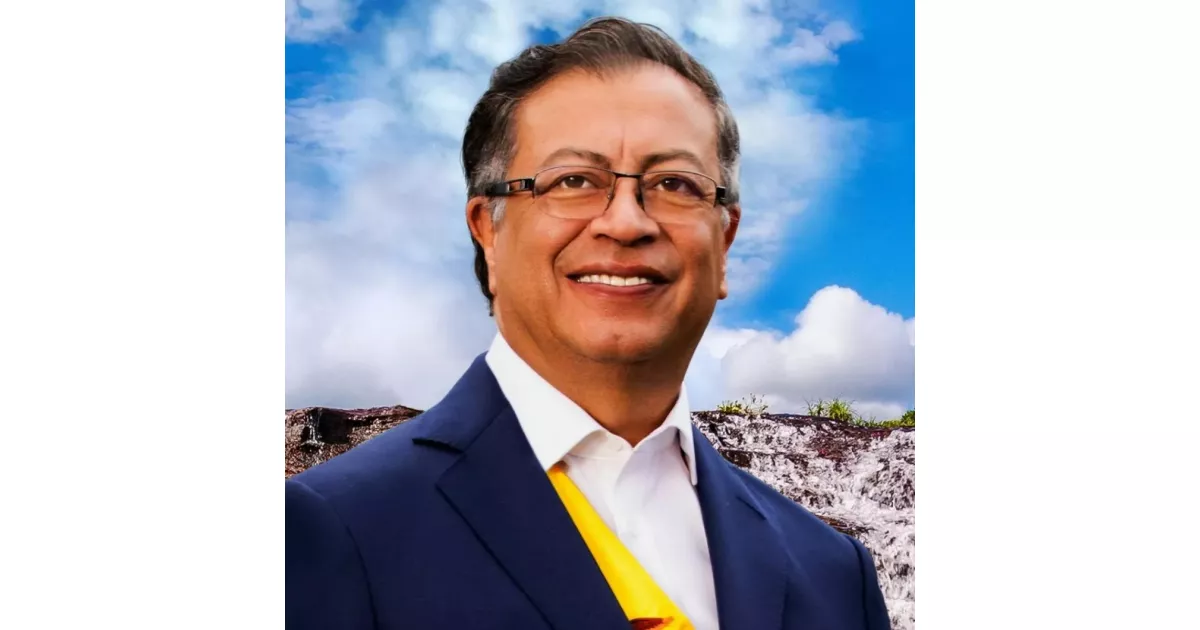"Gustavo Francisco Petro Urrego is a Colombian politician and former guerrilla fighter who assumed office as the 34th president of Colombia in 2022. His victory marked a significant political shift as he became the first left-wing president in the country's recent history."
April 1960: Birth of Gustavo Petro
Gustavo Francisco Petro Urrego was born in Ciénaga de Oro, Córdoba, Colombia in April 1960.
1960: Birth and Upbringing
Gustavo Petro was born in 1960 and raised in the Catholic faith. He has Italian citizenship due to his great-grandfather, Francesco Petro, who migrated from Southern Italy in 1870.
1970: Alleged Election Fraud
The 1970 Colombian presidential election was marred by allegations of fraud, which contributed to the rise of opposition groups, including the M-19.
1974: Emergence of the 19th of April Movement (M-19)
The Colombian guerrilla organization M-19 emerged in 1974 in opposition to the National Front coalition after allegations of fraud in the 1970 election.
1981: Elected as Ombudsman of Zipaquirá
While a member of the M-19, Gustavo Petro was elected ombudsman of Zipaquirá in 1981.
1984: Elected as Councilman of Zipaquirá
Gustavo Petro was elected councilman of Zipaquirá in 1984, serving until 1986.
1985: Arrest and Imprisonment
Gustavo Petro was arrested in 1985 by the Colombian army for illegal possession of arms. He was tortured and sentenced to 18 months in prison. This experience led him to shift his ideology away from armed resistance.
1986: End of Term as Councilman
Gustavo Petro's term as councilman of Zipaquirá ended in 1986.
1987: M-19 Engages in Peace Talks
In 1987, the M-19 guerrilla group, of which Gustavo Petro was a member, began peace talks with the Colombian government.
1991: Elected to the Chamber of Representatives
As a member of the M-19 Democratic Alliance, Gustavo Petro was elected to the Chamber of Representatives in the 1991 Colombian parliamentary election.
1991: Formation of the M-19 Democratic Alliance
Following the demobilization of the M-19 guerrilla movement, former members, including Gustavo Petro, formed a political party called the M-19 Democratic Alliance. The party won a significant number of seats in the Chamber of Representatives in the 1991 elections.
1991: Petro Invites Chávez to Colombia to Study 1991 Constitution
Gustavo Petro invited Hugo Chávez to Colombia in 1991 to learn about the country's new Political Constitution.
February 1992: Venezuelan Coup D'état Attempt
Hugo Chávez was involved in a coup d'état attempt in Venezuela in February 1992. The coup failed, and Chávez was imprisoned.
July 1994: Meeting with Hugo Chávez
In July 1994, Gustavo Petro met with Hugo Chávez, who had recently been released from prison following his involvement in the February 1992 Venezuelan coup d'état attempt.
1994: Petro and Chávez Meet, Swear Oath of Bolivarian Integration
In 1994, Gustavo Petro and Hugo Chávez met on Seventh Street in Bogotá. At the Bridge of Boyacá, they both swore an oath of Bolivarian integration for Latin America.
1997: Uribe Eliminates Legal Liability of CONVIVIR Groups
Álvaro Uribe, then governor of Antioquia, eliminated the legal liability of eight CONVIVIR groups in 1997, according to the Vigilance and Security Superintendency.
2001: San Juan de Dios Hospital closes
The San Juan de Dios Hospital closed in 2001.
2002: Allegations of AUC Funding for Uribe's Campaign
Gustavo Petro alleged that the AUC provided financial support to Álvaro Uribe's presidential campaign in 2002.
2002: Elected to the Chamber of Representatives
Gustavo Petro was elected to the Chamber of Representatives in 2002, representing Bogotá. He was a member of the Vía Alterna political movement.
2003: Petro Marries Verónica Alcocer
In 2003, Gustavo Petro married Verónica Alcocer, a law student who was 17 years younger than him. Their relationship initially faced resistance from Alcocer's conservative family, but Petro eventually gained their approval.
2005: Formation of the Alternative Democratic Pole
Gustavo Petro, as a member of Vía Alterna, participated in the formation of the Alternative Democratic Pole in 2005. This involved a merger with the Frente Social y Político to form the Independent Democratic Pole, which later fused with Alternativa Democrática. The new party brought together numerous leftist political figures.
2005: Petro Denounces Enilse López
In 2005, Gustavo Petro, then a member of the Chamber of Representatives, publicly denounced Enilse López for her alleged ties to paramilitary groups.
2006: Uribe Admits to Receiving Support from López
During his 2006 re-election campaign, President Álvaro Uribe admitted to receiving financial support from Enilse López, although he refuted Gustavo Petro's allegations of AUC involvement in his 2002 campaign.
2006: Elected as a Senator
Gustavo Petro was elected as a senator in the 2006 Colombian parliamentary election, representing the Alternative Democratic Pole (PDA) party. He received the second-largest number of votes.
2006: Elected to the Senate and Exposure of the Parapolitics Scandal
Gustavo Petro was elected to the Senate in 2006, achieving the second-highest voter turnout nationwide. During his time in the Senate, he played a significant role in exposing the Parapolitics scandal, which involved accusations that members of the Colombian government were collaborating with paramilitary groups.
2006: Considered for "Best Congressman"
In 2006, while a member of the Chamber of Representatives, Gustavo Petro received 25 votes out of 125 representatives for the title of "Best Congressman." However, 24 representatives believed that no one deserved the title due to widespread absenteeism and a lack of sessions during that legislative period.
February 2007: Public Dispute with President Uribe
In February 2007, Gustavo Petro engaged in a public dispute with President Álvaro Uribe regarding the demobilization of paramilitaries. Petro suggested that Uribe should have recused himself from negotiations due to accusations that his brother, Santiago Uribe, was a former member of the "Twelve Apostles" paramilitary group. Uribe responded by accusing Petro of being a "terrorist in civilian clothing."
April 2007: Congressional Debate on Paramilitarism
On April 17, 2007, Gustavo Petro initiated a debate in Congress concerning the CONVIVIR groups and the growth of paramilitarism in Antioquia. During his speech, Petro presented documents that he claimed showed connections between the Colombian military, political leaders, drug traffickers, and paramilitary groups. He also criticized Uribe's actions as governor of Antioquia during the CONVIVIR years.
April 2007: Superintendency Rejects Petro's Accusations
On April 18, 2007, the Vigilance and Security Superintendency issued a statement rejecting Gustavo Petro's accusations about the CONVIVIR groups. The Superintendency stated that many of the groups Petro mentioned had been authorized by the departments of Sucre and Córdoba, not by the Antioquia government, when Uribe was governor. They also stated that Uribe had revoked the legal status of eight CONVIVIR groups in 1997.
May 2007: Colombian Army officers caught spying on Petro
In May 2007, two non-commissioned Colombian Army intelligence officers were apprehended while spying on Petro and his family. Though they initially claimed to be members of the Colombian Intelligence Agency (DAS), their assertion was refuted by the agency's director.
2008: Petro announces presidential candidacy
Petro declared his interest in running for president in 2010, distancing himself from the current government's policies and advocating for a "great national accord to end Colombia's war."
May 2009: Imprisonment of Enilse López
In May 2009, Colombian lottery businesswoman Enilse López, also known as "La Gata," was imprisoned and investigated for her alleged ties to the United Self-Defense Forces of Colombia (AUC), a paramilitary group.
September 2009: Petro wins Alternative Democratic Pole primary
Gustavo Petro emerged victorious in the Alternative Democratic Pole primary election in September 2009, defeating Carlos Gaviria to become the party's candidate for the 2010 presidential election.
2009: Resignation from Senate
In 2009, Gustavo Petro resigned from his position as senator to run for president in the 2010 Colombian presidential election.
May 2010: Petro finishes fourth in presidential election
In the May 2010 presidential election, Petro surpassed expectations, securing fourth place with 9.1% of the total votes.
2010: Ran for President of Colombia
Gustavo Petro participated in the 2010 Colombian presidential election, finishing fourth.
2010: Petro runs for president
Petro ran for president in 2010, proposing a "great national accord to end Colombia's war" based on removing organized crime from power, cleaning up the judicial system, land reform, democratic socialism and a security policy differing from President Uribe's.
October 2011: Elected Mayor of Bogotá
Gustavo Petro was elected mayor of Bogotá in the local elections of October 2011.
January 2012: Assumed Office as Mayor of Bogotá
Gustavo Petro assumed office as mayor of Bogotá in January 2012, after winning the local elections.
June 2012: Petro bans bullfighting in Santamaría Bullring
In June 2012, Petro implemented a ban on bullfighting within Bogota's Santamaría Bullring, a decision later overturned by the Constitutional Court.
2012: Implementation of Integrated Public Transport System begins
The implementation of the Integrated Public Transport System (SITP) commenced in mid-2012 during Petro's administration.
December 2013: Petro removed from office and banned from political activity
Following a recall process initiated by opposition parties, Inspector General Alejandro Ordóñez Maldonado removed Petro from office in December 2013 and imposed a 15-year ban on his political activity, citing mismanagement and illegal decrees during the implementation of Petro's waste collection system. This decision sparked protests, with critics deeming it politically motivated and undemocratic.
2013: Petro Mourns Death of Chávez, Acknowledges His Legacy
Following Hugo Chávez's death in 2013, Petro expressed his belief that Chávez was a "great Latin American leader" who would be remembered by history.
March 2014: Petro removed from office despite injunction
Despite an injunction from the Inter-American Commission on Human Rights suspending the sanction, President Juan Manuel Santos upheld Petro's removal from office in March 2014. Labor Minister Rafael Pardo was appointed as interim mayor.
April 2014: Petro reinstated as mayor
In April 2014, a magistrate from the Superior Tribunal of Bogotá ordered President Santos to comply with the Inter-American Commission on Human Rights' recommendations, leading to Petro's reinstatement as mayor. He served the remainder of his term.
2014: Subsidy for public transportation introduced
In early 2014, Petro's administration introduced a 40% subsidy on public transportation fares for individuals registered in SISBEN 1 and 2, allocating 138 billion pesos for this initiative.
2014: Petro commissions subway infrastructure studies
Petro's administration commissioned studies for a subway system in Bogota, awarding a contract worth $70 billion pesos to a Colombian-Spanish company. These studies were finalized by the end of 2014.
February 2015: Reopening ceremony for San Juan de Dios Hospital
The protocol ceremony for the reopening of the San Juan de Dios Hospital Complex, which had been closed since 2001, was formalized in February 2015 under Petro's mayorship.
December 2015: District experiences difficulties with new patients
During Petro's final month in office, the district encountered challenges accommodating new patients who joined the EPS Capital Salud following the liquidation of Saludcoop in December 2015.
2016: Petro Sparks Controversy with Tweet About Venezuelan Supermarkets
In 2016, amidst Venezuela's economic crisis, Petro sparked controversy by tweeting a photo of a fully stocked supermarket in Caracas, questioning whether media reports about shortages were accurate.
2018: Petro Acknowledges Chávez's Popular Election While Criticizing Maduro's Authoritarianism
During a 2018 interview, Petro acknowledged that Hugo Chávez had been democratically elected while criticizing the authoritarianism that had taken hold in Venezuela under Nicolás Maduro.
2018: Ran for President of Colombia
Gustavo Petro ran for president of Colombia in 2018. He came in second place in the first round of voting but lost in the runoff election.
2018: Petro runs for president again
Petro ran for president again in 2018, securing second place in the first round of voting. A lawsuit was filed against his opponent, Iván Duque, alleging bribery and fraud.
2019: Petro Opposes Foreign Intervention in Venezuela, Emphasizes Venezuelan Solutions
Petro voiced his opposition to any potential U.S. military intervention in Venezuela in 2019, asserting that it was up to Venezuelans to resolve their own political issues.
2019: Petro Maintains Ambiguous Stance on Venezuela's Political Situation
Prior to becoming president in 2019, Petro's position on Venezuela under Hugo Chávez and Nicolás Maduro remained ambiguous. He neither condemned the country's human rights violations nor expressed unconditional support for its leadership.
2020: Petro Advocates for "Zero Abortion"
Throughout 2020, Gustavo Petro began publicly supporting the concept of "zero abortion." He suggested that achieving this goal involved implementing comprehensive sexual education and utilizing various technological measures. His statements sparked debate and drew criticism from both supporters and opponents of abortion rights.
September 2021: Petro announces candidacy for 2022 election
Petro declared his candidacy for the 2022 presidential election, stating his intention to retire from politics if unsuccessful and emphasizing his focus on green energy, economic equality, and climate change.
October 2021: Petro Criticized for Abortion Stance
In October 2021, Petro faced backlash for his stance on abortion, particularly his use of the term "zero abortion." Critics, including Francia Márquez, questioned his understanding of feminism and accused him of pandering to anti-abortion groups. Petro responded by sharing a photo of a book on feminism gifted to him by his daughter.
February 2022: Petro Responds to Maduro's Criticism, Calls for Democracy in Venezuela
In February 2022, Petro responded to criticism from Nicolás Maduro, who had labeled him and other left-wing leaders as "cowards." Petro countered by urging Maduro to embrace democracy and consider stepping down for the betterment of Venezuela.
February 2022: Petro Responds to Abortion Decriminalization
In February 2022, following the Colombian Constitutional Court's decision to decriminalize abortion, Petro expressed his support for the ruling on Twitter. He acknowledged the women who fought for this change and highlighted the importance of women's empowerment, sexual education, and freedoms.
May 2022: Death Threats and Security Concerns During Campaign
In May 2022, Gustavo Petro and his running mate Francia Márquez faced numerous death threats from paramilitary groups while campaigning. Petro had to cancel rallies in Colombia's coffee region due to an alleged assassination plot by the La Cordillera gang. An open letter signed by 90 elected officials and prominent individuals from over 20 countries condemned the political violence against Petro and Márquez. The letter also highlighted the assassination of over 50 social leaders, trade unionists, and environmentalists in 2022.
May 2022: Campaign Controversies and Criticism
In May 2022, during the campaign, Gustavo Petro faced criticism over his economic proposals, which included increasing taxes on unproductive landowners and shifting to clean energy. Critics compared his policies to those of Venezuela's Nicolás Maduro and Hugo Chávez. Petro pledged not to expropriate property if elected and criticized Venezuela’s reliance on oil. He also pointed out similarities between Maduro's Venezuela and the Colombian government under Iván Duque.
June 2022: Petro Attends Feminist Debate
In June 2022, Gustavo Petro participated in the Feminist Debate, where he engaged with women's rights and LGBTQ+ advocacy groups. He pledged to uphold the recent decriminalization of abortion and emphasized that a woman's decision to have an abortion should not be criminalized or subject to social sanctions.
August 2022: Petro Takes Office with 48% Approval Rating
Gustavo Petro assumed the presidency in August 2022, starting his term with an approval rating of 48%.
August 2022: Petro Calls for Drug Policy Reform
In August 2022, Petro made a bold statement calling for the decriminalization of cocaine and marijuana production. He stated that the global war on drugs had failed and urged for a new international agreement on drug policy.
August 2022: Petro Recognizes Maduro as Venezuelan President, Dismisses Guaidó's Legitimacy
In an August 2022 interview, Petro stated that he would only recognize Nicolás Maduro as the legitimate president of Venezuela, rejecting the legitimacy of Juan Guaidó's interim government.
August 2022: Gustavo Petro's Inauguration
On 7 August 2022, Gustavo Petro was sworn in as president of Colombia. Analysts considered him as the country's first-ever left-wing president, although this claim is disputed by some experts.
September 2022: Protests Against Structural Reforms
A series of protests began in Colombia on 26 September 2022 against President Petro's structural reforms. The protests were driven by opposition to his political agenda and allegations of corruption in his 2022 campaign. The controversy, dubbed 'Nannygate', involved illegal interceptions and possible illegal campaign financing, leading to resignations and a significant drop in Petro's approval rating to 26%.
September 2022: Petro Adopts Wife's Son
In September 2022, Petro formally adopted Nicolás, his wife Verónica Alcocer's son from a previous relationship. This event marked a significant step in solidifying their family bond.
September 2022: Colombian Ambassador to OAS Prioritizes Regional Integration Over Condemnation of Nicaragua
Luis Ernesto Vargas, Colombia's ambassador to the Organization of American States, declared in September 2022 that he would prioritize regional integration over condemning human rights violations in Nicaragua, although he would still speak out against them when necessary.
September 20, 2022: Petro Addresses UN, Questions Global Drug War and Climate Change
On September 20, 2022, Petro delivered a speech at the United Nations General Assembly, where he questioned the effectiveness of the war on drugs and highlighted the role of "addiction to irrational power, profit and money" in the climate crisis.
October 2022: Land Distribution Agreement
In early October 2022, the Colombian government reached an agreement with the Federation of Ranchers (Fedegan) to buy three million hectares of arable land at market price. This was part of implementing the 2016 peace agreement's agrarian chapter, which aimed to distribute land to peasants. The agreement faced criticism for potentially high costs and failing to address historical injustices related to land grabbing.
October 2022: Petro Claims More Migrants Returning to Venezuela Than Leaving
Petro asserted in October 2022 that the number of migrants returning to Venezuela was surpassing those leaving, suggesting a shift in migration patterns.
2022: Petro returns to the Senate
After losing to Duque in the 2018 election, Petro returned to the Senate and served until the inauguration of a new congress in 2022.
2022: Maduro Congratulates Petro on Presidential Victory, Expresses Hope for Improved Relations
Following Petro's victory in the 2022 Colombian presidential election, Nicolás Maduro congratulated him and expressed optimism about the future of relations between the two countries.
2022: Inauguration as President of Colombia
Gustavo Petro was inaugurated as the 34th president of Colombia in 2022, becoming the first left-wing president in the country's recent history.
2022: Elected President of Colombia
Gustavo Petro won the 2022 Colombian presidential election against Rodolfo Hernández Suárez in the second round of voting on June 19, 2022.
2022: Petro Addresses Concerns Over Representation of Women and Afro Leaders, Afro-Colombian Communities Celebrate His Victory
Petro addressed criticism from Francia Márquez, his vice presidential running mate, regarding the representation of women and Afro leaders on congressional lists. He took steps to ensure their inclusion. Petro's 2022 presidential victory was particularly significant for Afro-Colombian communities, as he garnered strong support in regions with large Afro-Colombian populations.
2022: Petro runs for president for a third time
Petro ran for president for a third time in 2022, campaigning on a platform of promoting green energy, decreasing economic inequality, and addressing climate change.
January 2023: Petro Outlines Healthcare and Pension Plans
In January 2023, Petro unveiled his plans for improving healthcare and pensions in Colombia. He proposed a shift towards a preventative healthcare model, emphasizing early disease detection and care, especially in underserved rural areas. He also pledged to provide a monthly bonus to recipients of the state pension.
March 2023: Petro's Approval Rating Drops to 53% Disapproval
By March 2023, Petro's disapproval rating had risen to 53%, with residents in eastern Colombia, Bogotá, and the central region showing the highest levels of disapproval.
June 2023: Petro's Disapproval Rating Increases, Public Discontent Grows
June 2023 saw Petro's approval rating drop to 33%, while his disapproval rating climbed to 61%. Public discontent with his presidency was evident when he and his family were booed at an exhibition soccer game in Barranquilla, Colombia.
June 2023: Continued Protests and Scandals
On 20 June 2023, protests continued in Colombia against President Petro's government. These demonstrations were fueled by dissatisfaction with his political agenda and alleged corruption in his 2022 presidential campaign. The 'Nannygate' scandal, involving illegal interceptions and possible illegal financing, severely impacted Petro's credibility and decreased his approval rating to 26%.
July 2023: Petro's Son Arrested
In July 2023, Gustavo Petro's son, Nicolás, was apprehended on serious allegations of money laundering. The arrest sparked significant controversy and media attention.
November 2023: Liberal Party Leaves Coalition
On 28 November 2023, the Liberal Party left Gustavo Petro's governing coalition, citing ideological differences. Petro had previously succeeded in building a moderate coalition by negotiating with centrist and right-wing parties, securing support in exchange for government seats.
2023: Petro Condemns Israel's Actions in Gaza, Accuses Israel of Genocide
During the 2023 Israel–Hamas war, Petro condemned Israel's actions in the Gaza Strip, accusing the country of committing genocide against the Palestinians.
2023: Deforestation in Colombian Amazon Decreases Under Petro's Policies
During the first nine months of 2023, deforestation in the Colombian Amazon decreased by 70% compared to the same period in 2022. This reduction is attributed to the conservation policies implemented by Petro's administration, such as providing financial incentives to local communities for forest preservation.
2023: Petro's Policies Contribute to Reduced Old-Growth Forest Loss in Colombia
In 2023, Colombia experienced a significant decrease in old-growth forest loss, partly attributed to Gustavo Petro's environmental policies. The World Resources Institute acknowledged the impact of government actions and community involvement in achieving this positive outcome.
Mentioned in this timeline
Venezuela officially the Bolivarian Republic of Venezuela is a country...
Colombia officially the Republic of Colombia is a country located...

Books are a means of storing information as text or...
Israel located in the Southern Levant region of West Asia...
Italy officially the Italian Republic is located in Southern and...
Climate change encompasses global warming and its far-reaching effects on...
Trending
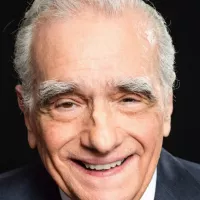
3 months ago New Documentary Explores the Life and Career of Martin Scorsese: A Genius?
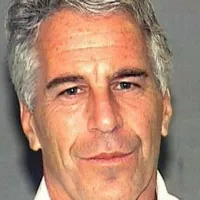
3 months ago Michael Wolff Sues Melania Trump over Alleged Defamation and Epstein Claims.
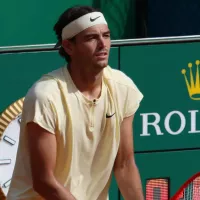
2 months ago Alcaraz Rallies to Victory Against Fritz, Closing in on No. 1 Ranking
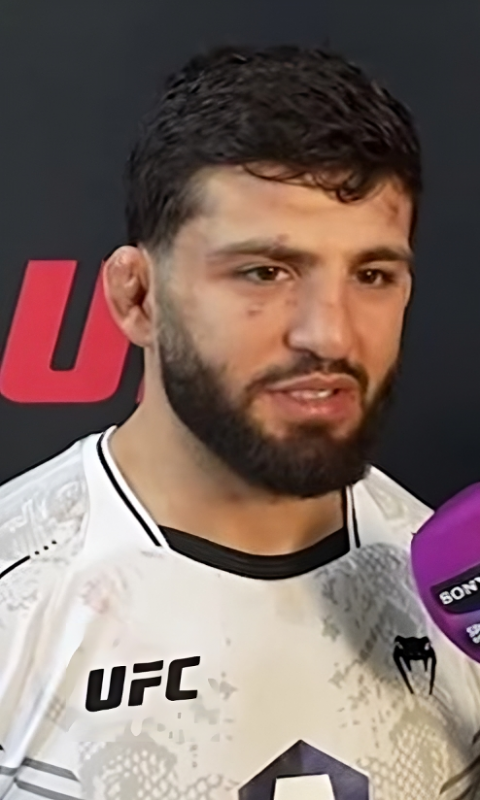
2 months ago Tsarukyan aims to reenter title contention facing Hooker; tensions rise before UFC fight.

6 months ago Naomi Osaka advances in Montreal as Pegula is upset by Sevastova.
7 months ago Hurkacz faces Bautista Agut; official statement released; Den Bosch match decision.
Popular

Thomas Douglas Homan is an American law enforcement officer who...

Martin Luther King Jr was a pivotal leader in the...

XXXTentacion born Jahseh Dwayne Ricardo Onfroy was a controversial yet...

William Franklin Graham III commonly known as Franklin Graham is...
Matt and Ross Duffer known as the Duffer Brothers are...

Instagram is a photo and video-sharing social networking service owned...
